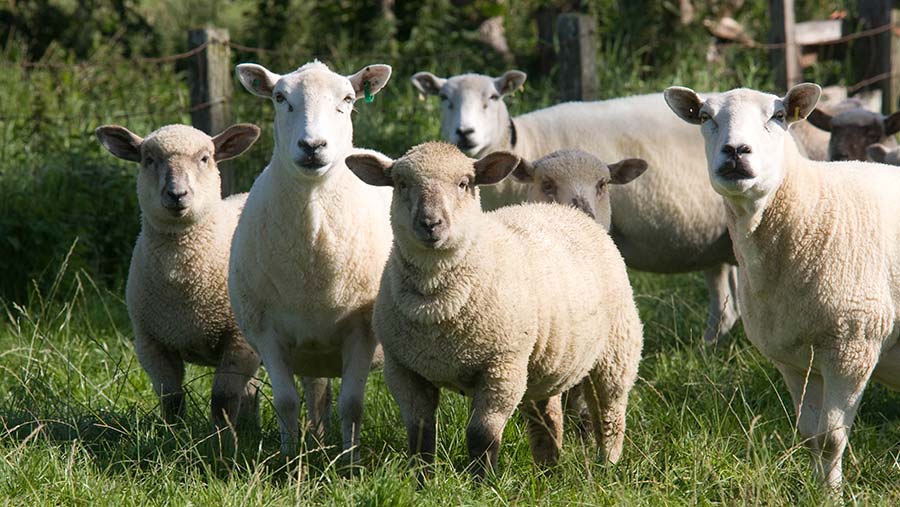Late season orange and purple wormer use increasing
 © Tim Scrivener
© Tim Scrivener More farmers are using the two newest classes of wormer to quarantine sheep and provide mid- to late-season worm control, say leading vets.
Use of orange (Monepantel) and purple (Derquantel) wormers has doubled in recent years, according to the Sustainable Control of Parasites in Sheep (Scops) group.
The two drugs offer reliable worm control on farms struggling with resistance to the older White BZ (Albendazole, Oxfendazole, Fenbendazole), Yellow LV (Levamisole) and Clear ML (Ivermectin, Eprinomectin and Moxidectin) wormers, Scops says.
Lesley Stubbings, an independent sheep consultant and Scops spokeswoman, says it is “great news” that more of these wormers are being used.
See also: A guide to effective wormer use to reduce resistance risk
She says the orange and purple wormer groups have two important jobs to do on sheep farms:
- Deliver a knock-out dose to weaned lambs to help growth rates and performance off pasture.
- Help manage worm burdens on farms through use on bought-in animals in quarantine programmes.
The four Scops principles
- Ensure an effective dose. Weigh animals, administer product gently over the back of the tongue, assess resistance on your farm.
- Monitor and manage to cut wormer use. Use FECs, use clean pastures for young lambs, group lambs by age, mixed grazing, condition score and feed high levels of undegradable protein.
- Avoid bringing worms on your farm. Quarantine breeding sheep.
- Avoid selecting for resistant worms. Dose and then only move sheep to fresh pasture three to four days later so the worm population on the new pasture is not made up of purely resistant animals that can breed.
Ms Stubbings stresses that orange and purple wormers have an important role to play in managing anthelmintic resistance and that farmers should use the product on ewes only with detailed veterinary advice.
The orange wormers can be prescribed to farmers by a Suitably Qualified Person (SQP) or pharmacist, while purple products can only be supplied by vets.
Test first
Sheep breeder and Scops steering group chairman Peter Baber says any wormer dose should be given only if results of a faecal egg count (FEC) test suggest a dose is needed.
Mr Baber says he has been using wormers strategically – in line with current Scops principles (see box) – for the past 20 years and, as a result, can still use the three old classes of anthelmintic on his flock.
He has drenched his lambs twice this year: an early season dose was given when FECs suggested there was a nematodirus challenge and again at weaning, according to FEC results.
“Farmers should be using the new orange and purple products if they think they have an issue with worms after weaning or want to quarantine stock,” he tells Farmers Weekly. “They won’t have an impact on preserving the efficacy of the older products if they just sit on the shelf.
“The important thing is to drench when necessary according to FEC results, which can be done at home through laboratory services or through vets and agricultural merchants.”
